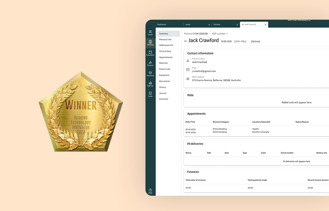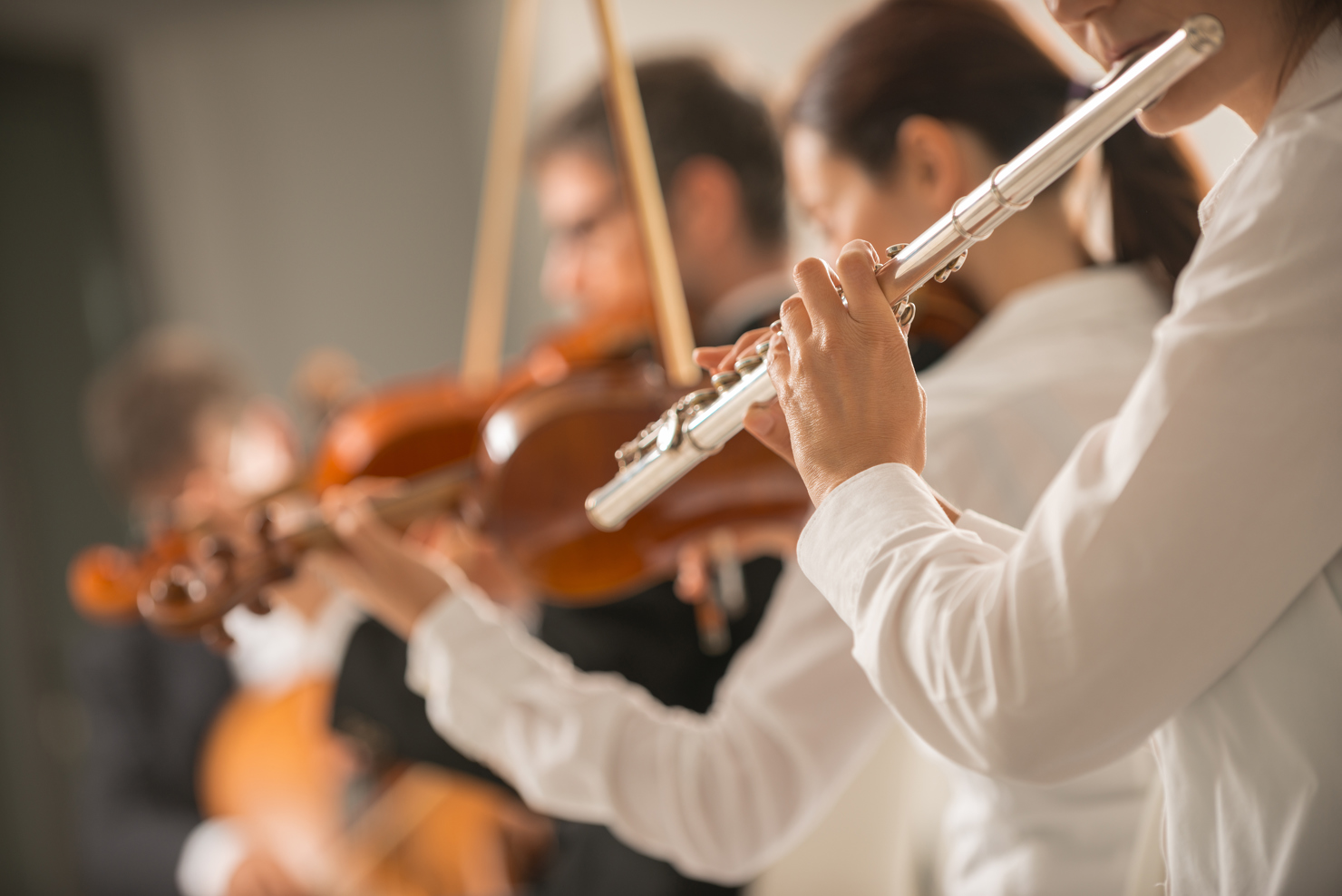
Loud Music and Hearing Loss
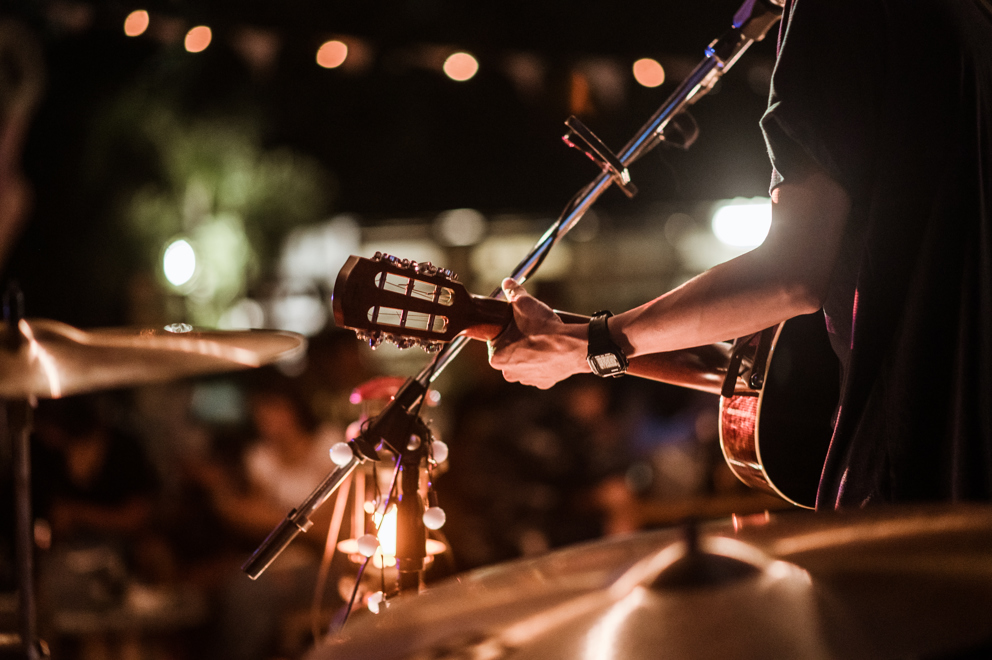
Hearing is an integral part of music, so many musicians with hearing loss wonder if they’ll be able to continue performing – or enjoying – the songs they love. People with untreated hearing loss often describe music as sounding "flat." They may have trouble understanding lyrics or be unable to decipher the sounds of different instruments, especially when they’re playing together. What’s more, if they have tinnitus, they’re often distracted by the constant ringing, buzzing, or humming they hear, which makes it difficult to focus on the music.
Did you know that genius composer and musician Ludwig Van Beethoven was deaf, but continued to perform, compose, and conduct? And some of the most popular and influential rock stars – including Liam Gallagher of Oasis, Soul Asylum’s Dave Pirner, Peter Townshend from The Who, Brian Johnson from AC/DC, and Mick Fleetwood of Fleetwood Mac – have hearing loss. In fact, 60% of inductees in the Rock & Roll Hall of Fame are hearing impaired.
Noise-induced hearing loss is a huge risk in the music business, and often happens when someone is exposed to loud noises (like loud music!) for a prolonged amount of time. There’s a risk of hearing loss (or damage) for any noise above 85 decibels, and the average concert is between 110 and 115 decibels. Sound systems in some concert venues – including arenas and stadiums – can hit 140 decibels, which is louder than a jet engine! It’s no wonder that many musicians experience hearing loss and tinnitus!
For comparison, drills commonly used in construction projects are approximately 90 decibels. Construction workers regularly use hearing protection when using drills, jackhammers, and other loud equipment, yet many musicians perform without wearing hearing protection.
It’s not just loud rock or heavy metal music that can be damaging. Orchestra musicians can have hearing damage, too, especially if they’re sitting by the booming brass section. Also, violinists may experience hearing loss in the ear closest to their instrument. Any music, regardless of genre, can cause hearing damage if it’s played at loud volumes.
Loud music can lead to:
- Noise-induced hearing loss, which damages the auditory cells and nerves, and can be permanent.
- Tinnitus, which causes ringing, humming, buzzing, or hissing in the ears.
- Hyperacusis, a higher-than-average sensitivity to loud sounds.
Therefore, musicians (and music lovers) should wear proper hearing protection when they’re performing (or around) loud music.
Increased Tinnitus Risk for Musicians
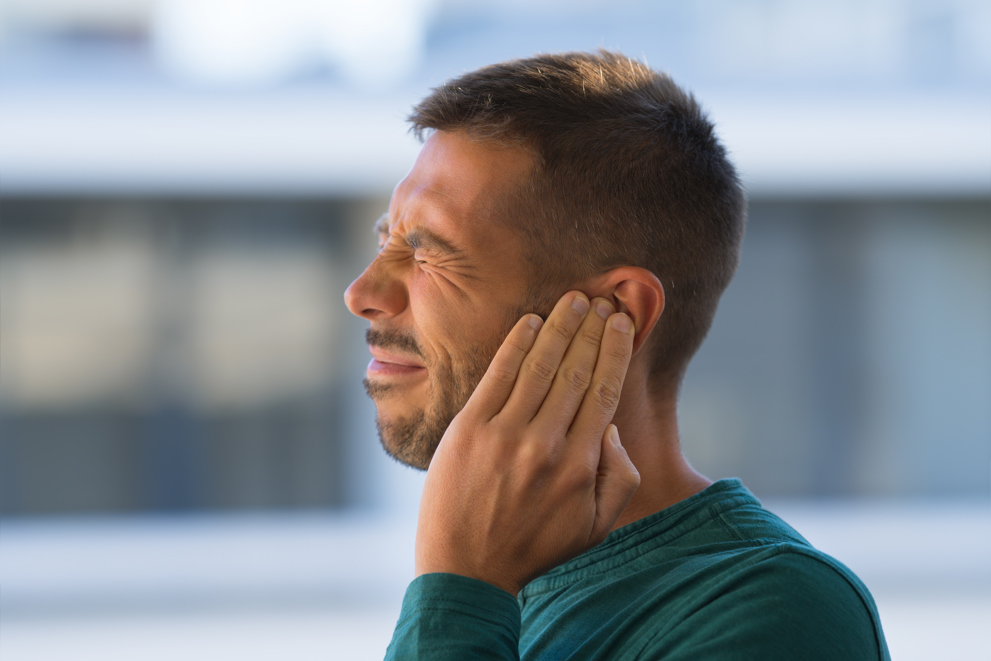
While tinnitus affects roughly 10-15% of the general population, its prevalence is much higher in the music industry, with 40-50% of musicians experiencing it. This is largely due to higher rates of noise-induced hearing loss among musicians, as hearing loss is a common cause of this condition.
Since musicians need to hear sounds clearly, tinnitus can be especially challenging for them. Tinnitus can negatively affect a person’s perception of sound and music, which is clearly problematic in the music industry. Compounding the problem, musicians spend considerable time focusing on the slightest differences in sound and frequency, and often experience a heightened awareness to sounds. Because of this, tinnitus can be extremely intrusive for them.
Musicians may be reluctant to talk about their tinnitus (and other hearing challenges), believing that by doing so, they’re risking their reputation and their chances of working in the future. As a result, many suffer in silence, feeling like they’re the only one experiencing this.
Ozzy Osbourne, a popular metal rockstar, talks openly about his tinnitus, saying his long career and repeated exposure to loud metal music caused the condition. Bono, the lead singer of U2, who ironically shares his stage name with a hearing aid store in Dublin, has been open about having tinnitus. It’s also notable that he references hearing loss in the lyrics of his song Staring at the Sun. Other famous musicians who have talked about having tinnitus include Chris Martin (Coldplay), Barbra Streisand, Neil Young, Eric Clapton, and Eddie Vedder (Pearl Jam).
Even though there’s currently no cure for tinnitus, there are solutions (like hearing aids) that can provide lasting relief. Tinnitus does not have to prevent musicians from playing, performing, and enjoying great music.
Hearing Protection for Musicians

Hearing protection is recommended anytime the listening environment exceeds 80 decibels. To determine how loud it is in a venue, on stage, or anywhere else, download a free decibel meter on your phone.
It’s essential to protect your hearing in loud environments, since prolonged loud noise exposure can cause tinnitus and hearing loss – and worsen existing problems. However, very few people take these risks seriously, often skipping hearing protection altogether. This is due, in large part, because people don’t truly understand the dangers of loud noise, plus some people believe there’s a stigma around wearing earplugs.
People in the music industry have a greater-than-average exposure to loud sounds and need to protect their hearing. At a minimum, musicians should wear disposable earplugs. However, a better choice is to invest in custom musician’s earplugs or in-ear monitors, which provide more protection.
Musician’s earplugs don’t just block out sound. Instead, their special attenuation filters can reduce the decibel volume level as evenly as possible. Foam or silicone earplugs make sounds seem muffled, making it challenging to hear music clearly. With musician’s earplugs, on the other hand, people can still hear everything clearly, just at a lower volume level. These earplugs uniquely lower all frequencies evenly, so the music quality sounds the same – just softer.
Off-the-shelf musician’s earplugs are available and work well. Or, for a better option, audiologists can create a custom molded pair. Musicians should consider having a custom molded pair of in-ear monitors made, too, so they can hear themselves – and other performers – while protecting their hearing.
When buying earplugs, check the noise reduction rating (NRR). A higher number indicates that it offers more protection. Use the highest amount of protection possible during practice sessions and performances.
Earmuffs are another great option for hearing protection. Unlike earplugs, which sit inside the ear canal, earmuffs go over the ears to block out noise.
Hearing Aids for Musicians (& People Who Love Music)
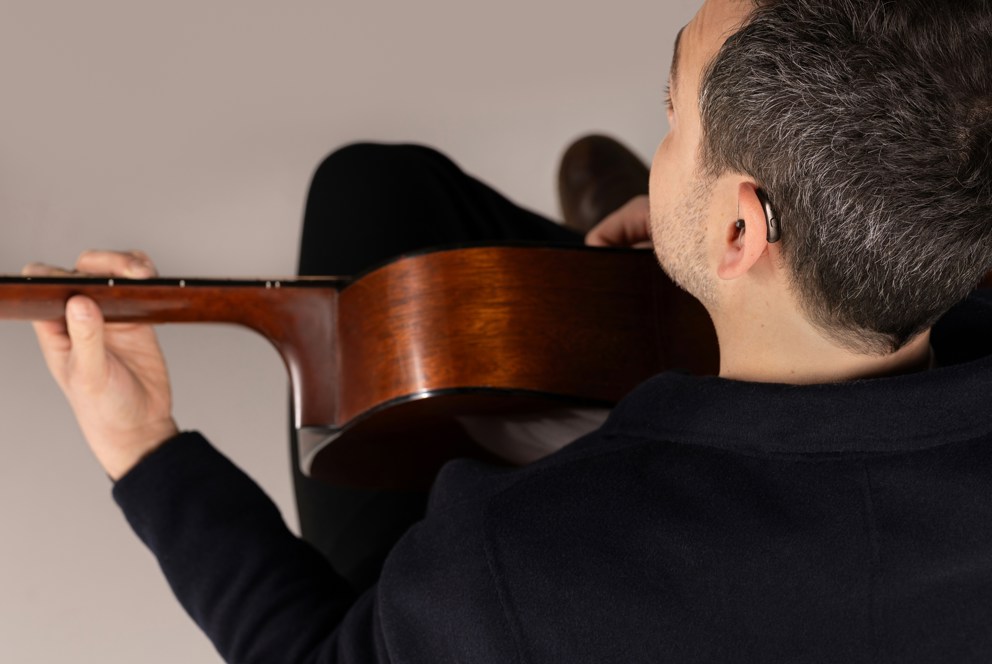
Many musicians (and music lovers) experience both hearing loss and tinnitus. In the past, they may have been frustrated with their hearing aids, as older model devices made music sound distorted and compressed. But modern hearing aids have become much better at processing music, and some hearing aid brands even come with specific music settings to optimize the listening experience.
Keep in mind that music has a much wider range of volume and frequency than conversation, meaning that sounds in music may be softer, louder, and differently pitched than sounds in speech. The main purpose of hearing aids has, historically, been to help people better understand human speech. During normal conversation, voices are typically in the 30 to 85 decibel range, and hearing aid settings are typically optimized for spoken conversation. Yet, a piano, for instance, has a 40% wider range in frequencies than the average female voice.
Luckily, newer hearing aids are highly customizable, and can be programmed for music settings. Additionally, many brands include customized tinnitus masking programs.
It’s important to note that not all music situations are the same, so users’ hearing aid settings need to be customized accordingly. For instance, someone who plays in a symphony at a tiny venue will have different music setting needs than someone in a heavy metal rock band performing at a sold-out arena. And that’s different than the settings a music lover would need to listen to their favorite songs at home. An audiologist can help program the hearing aids to each person’s particular needs, and teach users how to adjust their settings for various environments.
Auditdata Solutions
Raising Awareness, Improving Lives
As a leading provider of audiology solutions, we see it as our responsibility to raise awareness about the consequences of undetected hearing loss, help guide individuals to take the initial steps toward detection and treatment, and advise hearing care professionals on how to provide the best care experience.
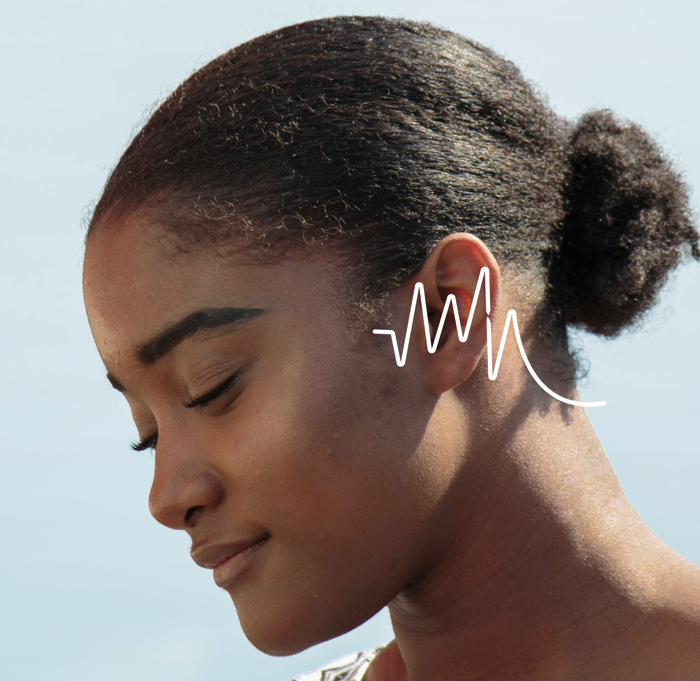
Other Blogs You Might Enjoy
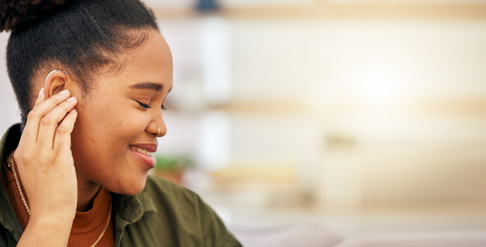
What Do Your Hearing Aid Users Need?
If someone suspects they have hearing loss, they should see an audiologist for a hearing screening to determine whether they need hearing aids. But then what happens? This blog explains how to give your patients what they need for success with their hearing aids, such as setting proper expectations, providing care and maintenance tips for the devices, offering valuable tips before they buy, and providing ongoing aftercare.

How Auditdata Manage Helps You Deliver Best Care Experiences
Explore how Auditdata's Practice Management Software, Manage, enhances audiology care with advanced scheduling, personalized services, and effective aftercare. Learn to optimize every patient interaction to provide best care experiences to every patient at all times.

Customer vs. Patient – Does it Matter What You Call the People You Serve?
Should hearing clinics refer to the individuals they serve as patients or customers? Do these words matter? Could specific terminology make people feel better (or worse) about needing hearing aids? This blog explores the connotations associated with these terms.
Don't Miss Out On the Latest Insights On Audiology
Sign up today to receive exciting updates, tips, and the latest newsletters from Auditdata.
